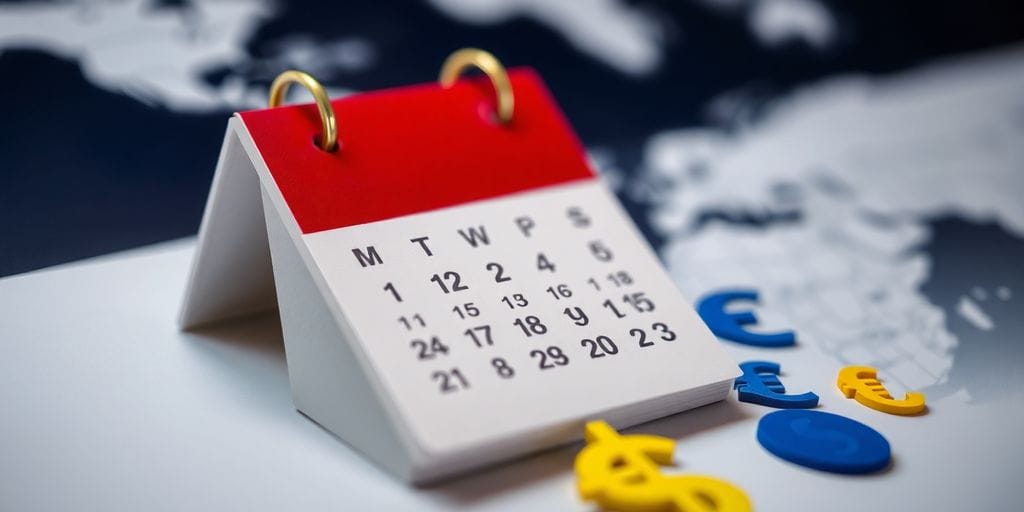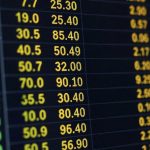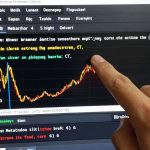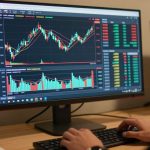So, you’re into forex trading, right? And you’ve heard people talk about the news calendar forex and how it’s super important. Well, they’re not wrong. Keeping an eye on the news calendar forex can really change how you trade. It’s like having a heads-up before things get crazy. This article will help you figure out how to use this tool so you can make smarter moves in the market.
Key Takeaways
- The news calendar forex shows you when big economic events are happening, which can make currency prices jump around.
- Knowing what’s coming up on the news calendar forex helps you plan your trades better, maybe even avoiding some bad surprises.
- You can use the news calendar forex to confirm if a trend is real or just a fluke.
- Always check the news calendar forex daily, even if you don’t plan to trade during news times.
- Don’t trade every single news release on the news calendar forex; sometimes it’s smarter to just sit back and watch.
Understanding the News Calendar Forex Impact
How Economic Events Influence Currency Pairs
Economic events are the lifeblood of the Forex market, causing fluctuations in currency values. These events, ranging from interest rate decisions to employment figures, provide insights into a country’s economic health, which directly impacts its currency’s attractiveness. Think of it like this: a strong economy usually means a strong currency. But how do you keep track of all this information? That’s where the news calendar comes in. It’s your go-to source for knowing when these events are happening, so you can prepare your trades accordingly. For example, a surprise announcement from a central bank can send shockwaves through the market, creating both risks and opportunities. It’s important to stay informed and be prepared for unexpected events.
Key Indicators and Their Market Significance
Certain economic indicators carry more weight than others. Here’s a quick rundown of some of the big ones:
- Gross Domestic Product (GDP): A measure of a country’s overall economic output. Higher GDP usually means a stronger economy and currency.
- Inflation Rate (CPI): Measures the rate at which prices are rising. Central banks often raise interest rates to combat high inflation, which can boost the currency.
- Employment Data (e.g., Non-Farm Payrolls): Indicates the number of jobs added or lost in an economy. Strong employment figures are generally positive for the currency.
- Interest Rate Decisions: Central banks use interest rates to control inflation and stimulate economic growth. Higher interest rates can attract foreign investment and strengthen the currency.
Understanding these indicators and their potential impact is key to successful Forex trading. The economic calendar displays a wide range of events, from high-impact news releases to low-impact events. High-impact news releases can significantly impact the market, while low-impact events may have a minimal effect. Therefore, it’s essential to know the importance of each event and how it could affect the market.
Anticipating Volatility from Major Announcements
Major news announcements often lead to increased market volatility. This is because traders react to the news, adjusting their positions based on their expectations. The Forex Factory News feed is a great tool to use for the day’s developments. The platform color-codes news items by impact level, red for high, orange for medium, and yellow for low, making it easy to spot which events might trigger market volatility. Here’s how to prepare:
- Stay Informed: Keep an eye on the economic calendar and be aware of upcoming announcements.
- Analyze Expectations: Look at market forecasts and analysts’ opinions to gauge the expected outcome of the announcement. Traders can use this information to gauge the market sentiment and make informed trading decisions.
- Manage Risk: Use stop-loss orders to limit potential losses in case the market moves against you. If you focus on USD/JPY and EUR/USD, you can filter for news that impacts the U.S., Eurozone, and Japanese economies, ensuring you stay informed about the developments that matter most to your trading strategy.
By understanding how economic events influence currency pairs, recognizing key indicators, and anticipating volatility, you can use the news calendar to your advantage in the Forex market.
Strategic Approaches to News Calendar Forex Trading
Trading Around High-Impact Events
Some traders thrive on the volatility that news events bring. The key is preparation. Before a major announcement, identify potential scenarios: what happens if the data is better than expected, worse than expected, or right in line with forecasts? Have your entry and exit points planned out in advance. It’s like preparing for a storm; you know it’s coming, so you secure your assets. A forex economic calendar is a great tool for this.
- Identify upcoming high-impact news.
- Analyze potential market reactions.
- Set up alerts for key releases.
Leveraging News for Trend Confirmation
News events can act as catalysts, either reinforcing existing trends or signaling potential reversals. Instead of blindly trading the news, use it to confirm what your technical analysis is already telling you. If you see a strong uptrend and positive news comes out supporting that currency, it could be a good opportunity to enter long. But remember, the market can be unpredictable, so always manage your risk.
News can be a powerful tool for trend confirmation, but it’s not a crystal ball. Always consider the broader market context and use sound risk management principles.
Avoiding Common Pitfalls in News Trading
News trading can be risky, and many traders fall into common traps. One of the biggest mistakes is over-trading, trying to capitalize on every single news release. Another is ignoring the broader market context, focusing solely on the news without considering technical factors or overall sentiment. Reacting too slowly to critical information can also lead to missed opportunities or, worse, significant losses.
Here’s a few things to keep in mind:
- Don’t over-trade. Pick your battles.
- Consider the big picture. News is just one piece of the puzzle.
- Have a plan and stick to it. Don’t let emotions drive your decisions.
Integrating the News Calendar Forex into Your Routine
It’s not enough to just know the news calendar exists. You need to make it a part of your daily trading life. Think of it like brushing your teeth – you don’t skip it, right? The same should go for checking the news calendar. Consistent integration is key to maximizing its value.
Daily Pre-Market Analysis
Before the market even opens, you should already have a good idea of what the day holds. This means checking the economic calendar first thing. I usually do this while I’m having my coffee. It’s about being prepared, not surprised. Here’s what I do:
- Check the economic calendar for upcoming events. What’s scheduled for release today? What times? What currencies will be affected?
- Review overnight developments. What happened while I was sleeping? Any major news out of Asia or Europe that could impact my pairs?
- Adjust my watchlist. Based on the news, which pairs are likely to be the most volatile? Which ones should I avoid?
- Set alerts. I use my broker’s platform to set alerts for specific news releases that are relevant to my positions. That way, I don’t have to sit glued to the screen all day.
Real-Time News Monitoring During Trading
Okay, the market’s open, and you’re actively trading. But you can’t just ignore the news now! You need to keep an eye on things as they happen. This doesn’t mean panicking over every little blip, but it does mean staying informed. Here’s how I handle it:
- Keep the economic calendar open. I have it minimized on my second monitor, so I can quickly check it if I need to.
- Monitor news feeds. I use a combination of economic calendar platforms and Twitter to stay on top of breaking news.
- Be ready to react. If a major news event breaks, be prepared to adjust your positions or even exit trades if necessary.
Post-Event Market Assessment
The news is out, the market has reacted (or maybe it hasn’t), and now it’s time to analyze what happened. This is just as important as the pre-market analysis. You need to understand why the market reacted the way it did, so you can learn from it. Here’s my process:
- Analyze the market’s reaction. Did it move as expected? Was the reaction stronger or weaker than anticipated?
- Note any unusual reactions. Sometimes the market does the opposite of what you’d expect. These are important to note for future reference.
- Look for second-wave opportunities. Often, the initial reaction to news is overdone. Look for opportunities to trade the correction.
Integrating the news calendar into your routine isn’t about blindly following the headlines. It’s about using information to make smarter, more informed trading decisions. It’s about understanding the why behind the market movements, not just the what. It’s about being prepared, adaptable, and always learning. It’s a process, not a one-time event.
Optimizing Your News Calendar Forex Strategy
Combining Fundamental and Technical Analysis
It’s not enough to just know what the news is; you need to understand why it matters and how it fits into the bigger picture. That’s where combining fundamental and technical analysis comes in. Think of it like this: the news calendar gives you the ‘what’ (economic data, announcements), and technical analysis helps you figure out the ‘how’ (potential price movements, support and resistance levels). For example, if the ISM Manufacturing PMI is better than expected, that’s a fundamental signal. But where is the price likely to go based on previous patterns? That’s where your charts come in.
Adjusting Risk Based on News Impact
Not all news is created equal. Some announcements barely cause a ripple, while others send the market into a frenzy. You need to adjust your risk accordingly. A good rule of thumb is to reduce your position size or widen your stop-loss orders before high-impact news events. This way, you’re less likely to get stopped out by a sudden spike in volatility. Consider these points:
- High-impact news: Reduce risk by 50% or more.
- Medium-impact news: Reduce risk by 25%.
- Low-impact news: Minimal or no adjustment needed.
Developing a Personalized Trading Plan
What works for one trader might not work for another. That’s why it’s so important to develop a trading plan that’s tailored to your own risk tolerance, trading style, and financial goals. Your plan should outline:
- The specific news events you’ll be trading.
- Your entry and exit strategies.
- Your risk management rules.
- How you’ll track your results and make adjustments along the way.
A personalized trading plan isn’t just a set of rules; it’s a roadmap to help you navigate the often-turbulent waters of forex trading. It keeps you disciplined, focused, and less likely to make emotional decisions based on fear or greed.
Essential Tools for News Calendar Forex Analysis

Utilizing Economic Calendar Platforms
Economic calendars are a must-have for any Forex trader. They provide a schedule of upcoming economic events and releases that can impact currency values. Think of them as your roadmap for the trading week. These platforms gather data from across the globe, giving you insight into when key figures like GDP, employment rates, and inflation data will be announced. Most brokers offer a real-time Economic Calendar on their websites, and there are also dedicated sites like Forex Factory and Trading Economics.
- Customize the calendar to show only the currencies you trade.
- Pay attention to the ‘impact’ rating of each event.
- Use the calendar to plan your trading day and week.
It’s easy to get overwhelmed by the sheer amount of data available. Start by focusing on the high-impact events for the currencies you trade. Over time, you’ll develop a better sense of which releases matter most to your strategy.
Setting Up News Alerts and Notifications
Staying on top of breaking news is important, especially when trading around economic events. News alerts and notifications can help you react quickly to market-moving information. You can set these up through your broker’s platform, or use third-party apps and services. The key is to get the information you need without being bombarded with noise.
- Choose reliable news sources.
- Customize alerts to focus on specific keywords or events.
- Test your alert settings to make sure they’re working correctly.
Accessing Reliable Data Sources
Not all data is created equal. It’s important to use reliable sources for economic information. Government agencies, central banks, and reputable financial news outlets are good places to start. Be wary of unofficial sources or websites that may spread misinformation. Remember, informed decisions are based on accurate data. A good start is to look at success in Forex trading and what resources they use.
- Cross-reference data from multiple sources.
- Check the methodology behind economic reports.
- Be skeptical of overly sensationalized news headlines.
Here’s a quick look at some popular data sources:
| Source | Type of Data | Notes traders can maximize their profits and minimize their losses.
Navigating Volatility with the News Calendar Forex
Managing Risk During News Releases
Trading the news can feel like riding a rollercoaster – thrilling, but also a bit scary. The key is to manage your risk effectively. One way to do this is by adjusting your position sizes. If you know a major announcement is coming, consider reducing the amount of capital you’re putting at risk. Think of it like driving in bad weather; you wouldn’t speed, right? Similarly, smaller positions can help you weather the storm of volatility. Also, always use stop-loss orders. These act as a safety net, automatically closing your position if the market moves against you more than you’re willing to tolerate.
- Adjust position sizes before major announcements.
- Always use stop-loss orders.
- Consider using guaranteed stop-loss orders (though they may come with a cost).
It’s important to remember that no strategy is foolproof. The market can be unpredictable, especially during news events. Always be prepared to adapt your approach and protect your capital.
Identifying Second-Wave Opportunities
Sometimes, the initial reaction to a news release is just a knee-jerk reaction. Savvy traders look for what I call "second-wave opportunities." This is when the market has had time to digest the news and a more rational trend starts to emerge. For example, a surprisingly bad jobs report might initially cause the dollar to fall. However, after a few hours, traders might realize that the Federal Reserve is now more likely to cut interest rate decisions, which could actually be good for the stock market and, indirectly, for the dollar. Identifying these second-wave opportunities requires patience and a good understanding of market dynamics. It’s about seeing beyond the immediate chaos and recognizing the underlying trends.
Understanding Market Reactions to Surprises
The market doesn’t always react logically to news. Sometimes, it seems to do the opposite of what you’d expect. This is often because the market has already priced in expectations. For example, if everyone expects a strong GDP number, and the actual number is just slightly above expectations, the market might sell off because it’s already "priced in" the good news. This is often referred to as "buy the rumor, sell the fact." Also, the market’s reaction can depend on the overall market sentiment. If the market is already in a risk-off mood, even good news might be ignored. Understanding these nuances is crucial for successful slippage trading. Here’s a simple table to illustrate:
| News Event | Expected Outcome | Actual Outcome | Possible Market Reaction |
|---|---|---|---|
| Inflation Report | Higher | Much Higher | Currency strengthens, bond yields rise |
| Employment Figures | Lower | Much Lower | Currency weakens, stock market rallies |
| Central Bank Meeting | Rate Hike | No Change | Currency weakens, stock market falls (disappointment) |
Common Mistakes in News Calendar Forex Trading

Over-Trading Every News Release
It’s tempting to jump on every single news announcement, but that’s a quick way to burn through your capital. Not every news release creates a tradable opportunity. Sometimes the market reaction is muted, or the initial spike reverses quickly. You’ve got to be selective and patient. I remember one time I tried to trade every single Fed announcement for a month. It was exhausting, and my win rate tanked. Now, I focus on the ones that align with my strategy and have a history of significant market impact.
Ignoring Broader Market Context
News doesn’t exist in a vacuum. The same piece of news can have totally different effects depending on the overall market sentiment and technical picture. A positive jobs report might not boost a currency if there are bigger concerns about, say, inflation or geopolitical risk. Always consider the market context before making a move. I made this mistake early on when I saw a great GDP number for the UK and immediately went long on GBP/USD. Turns out, Brexit uncertainty was weighing so heavily on the pound that the positive data barely made a dent. Lesson learned.
Delayed Reactions to Critical Information
In the fast-paced world of forex, speed is key. If you’re manually analyzing the news and making decisions too slowly, the opportunity might be gone before you even enter the trade. By the time you’ve finished reading the report and deciding what to do, the market has already priced it in. It’s like trying to catch a train that’s already left the station. You need to be prepared to react quickly, or consider using automated systems to execute trades based on news events. I’ve found that setting up alerts and having a clear plan in advance helps me avoid delayed reactions.
Wrapping Things Up
So, we’ve talked a lot about the news calendar and how it fits into forex trading. It’s pretty clear that keeping an eye on those economic events is a big deal. It helps you make smarter choices and maybe even avoid some bad ones. Think of it like this: knowing what’s coming up lets you get ready, whether that means jumping into a trade or just sitting back and waiting. It’s not about being perfect, but about being prepared. Using the calendar well can really make a difference in how you trade, helping you stay on top of things in the market.
Frequently Asked Questions
Why is the news calendar so important for forex trading?
The news calendar is super important for forex trading because it tells you when big economic announcements are coming out. These announcements can make currency prices jump up or down a lot. Knowing when these events happen helps you plan your trades better and avoid big surprises.
How do economic events affect currency pairs?
Economic events like reports on jobs, inflation, or interest rates can really shake up currency pairs. For example, if a country’s job numbers are much better than expected, its currency might get stronger because people think that country’s economy is doing well.
When should I check the news calendar?
You should always check the news calendar before you start trading each day. It helps you see what big announcements are coming up that might affect your trades. Also, keep an eye on it during the day for any unexpected news.
Should I avoid trading during major news releases?
Yes, it’s often a good idea to be careful during big news releases. The market can get really wild and unpredictable. Sometimes, the best move is to wait until things calm down a bit after the news comes out.
Where can I find a reliable economic calendar?
Many websites offer free economic calendars that show all the important news. Some popular ones include ForexFactory.com, Investing.com, and DailyFX.com. These usually let you filter by currency, importance, and time.
What are the biggest risks of trading around news events?
The main risk is that the market can move very fast and unexpectedly, leading to quick losses if you’re on the wrong side of the trade. Also, sometimes the market doesn’t react the way you’d expect, which can be confusing.










